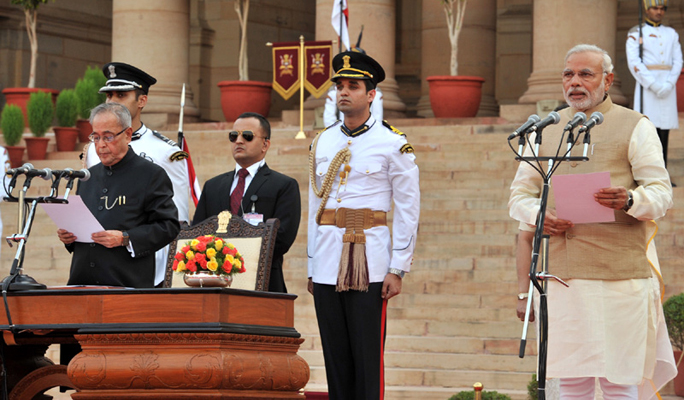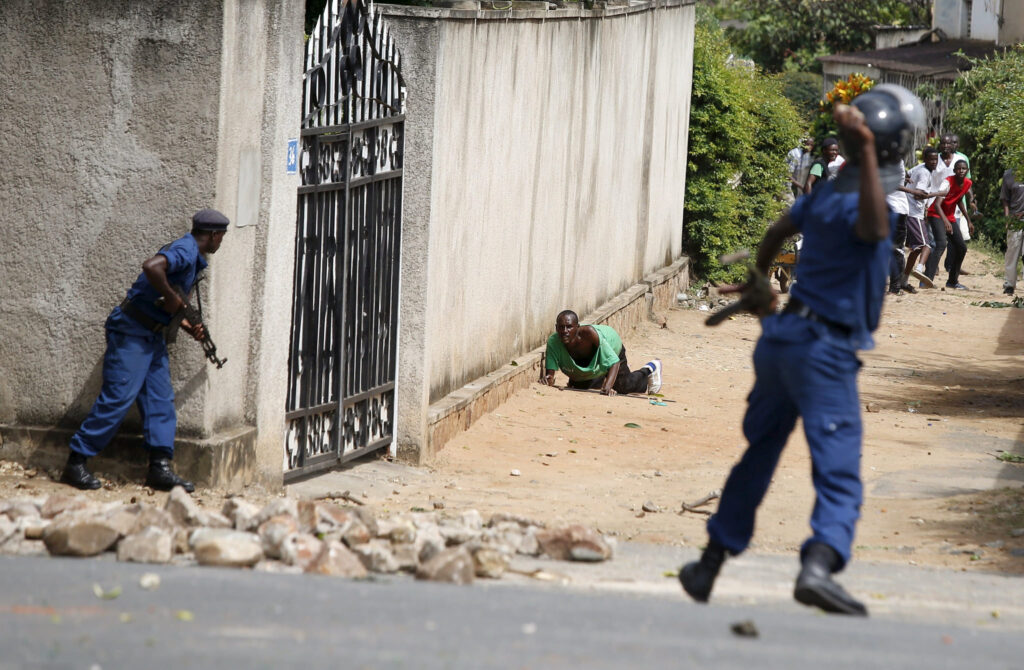
On May 26, 2014, Narendra Damodardas Modi was sworn in as India’s 15th Prime Minister. In his inaugural address, he outlined India’s “shining” future under his command. But, not all are convinced. His role as a Hindu Nationalist and leader during the 2012 Gujurat riots, which claimed the lives of over 1000 Muslims, leaves many skeptical of his agenda. I posit, however, that despite his past and potential shortcomings, Modi’s leadership will be a boon for the country and the region.
Modi won the national elections in a landslide partly due to his successes as Chief Minister of Gujurat (a position he retained for 13 years). Under Modi’s leadership, Gujurat became an economic powerhouse. Although the province accounts for only 5% of India’s population, it produced 16% of the entire nation’s industrial output and 22% of its exports. While the rest of the nation’s economy stagnated, Gujurat’s economy boomed, winning praises from business leaders and politicians alike. Modi’s pro-business stance brought, among other benefits, electricity to nearly every village in his province. To the common man’s eye, Modi was a politician who ‘got things done’.
Modi’s prime ministerial campaign – which embodied his energetic style – brought these local successes to the national spotlight. Over six weeks, he travelled over 200,000 miles and spoke at 500 rallies. He appeared at 800 more as a live hologram, solidifying his reputation as a tech-savvy, modern leader. Ultimately, Indians believed in Modi: a record 66% of citizens—urban and even rural, once the Congress Party’s electoral stronghold—voted in his favor.
Modi’s success can also be read as the Congress Party’s failure. The Gandhi family focused their campaign on ‘stopping Modi’, rather than promoting their own agenda. Yet, even if they had, victory was unlikely. Voters were tired of the high inflation rates, stagnant growth, ineffective leadership and corruption that defined the pro-Gandhi administration. Modi’s predecessor, Dr. Manmohan Singh, left office with his tail between his legs.
Though Modi won, a contingent of detractors believes that he, like other Indian politicians, has no substance. The Times of India published an article in late 2012 highlighting his “ten broken promises” that were made ahead of the 2007 state election. Despite public criticism, Modi kept his seat then and won the Prime Minister seat this month. The validity of these claims is now irrelevant, for the electorate has made its decision. The real question is what future Modi will bring for India.
Businessmen are heavily expecting a prosperous one. On May 22, after election results were known, the Indian stock market shot up into the top 10 of the world, surpassing Australia. The MNI (Market News International) India Business Indicator shows that ‘business confidence’ reached an all-time high this May, as the country began eagerly preparing for what it anticipates will be an economic boom.
The expectations of India’s general populace are, unsurprisingly, exceptionally high for Modi. His leadership style, I suspect, will be direct and decisive—a welcome improvement over Manmohan Singh’s decidedly quiet and ineffective one, which left the nation to the whims of corrupt officials. Yet, a potentially authoritarian, right-leaning and religious nationalist does lead one to wonder about India’s relationship with Islamic neighbor and long-time rival, Pakistan. Surprisingly, however, tensions seem to be easing gradually. Modi offered Pakistani Prime Minister Nawaz Sharif an invitation to the inauguration, and Sharif accepted. The two later met and even agreed to begin trade normalization talks. As a gesture of goodwill, Pakistan released 151 Indian fishermen imprisoned for unknowingly crossing the border; the Sri Lankan government quickly followed suit.

Caption: Narendra Modi met with Pakistan’s Prime Minister, Nawaz Sharif (right) at his inauguration. 2014. (Flickr Commons/Narendra Modi)
Modi’s rhetoric to and concerning Pakistan also seems to send a clear message to the US and the West. In a recent interview, Modi suggested that India and Pakistan could face the enemy of poverty together if the two nations can establish mutual trust. Additionally, a new relationship is possible if Pakistan can effectively stop harboring terrorists. In both statements, Modi appears to suggest that India can manage Pakistan on its own. Furthermore, Modi hinted at a shared strategic objective between India, Pakistan and the US to reduce terrorist activity in Pakistan. Thus, US-India relations should only improve in the coming years. Modi’s pro-business, pro-foreign investment stance should not only bolster the Indian economy, but also invite more US companies to take advantage of untapped markets and decreasing economic protectionism.
Narendra Modi’s reputation is one of an uncorrupted and effective domestic leader who seems already able to navigate the international arena. His past is, admittedly, somewhat spotty and his relationship with the Hindu Nationalist group, Rashtriya Swayamsevak Sangh (RSS), somewhat concerning. Yet, the Indian public has elected to move past this in hopes of gaining a leader who will prioritize development over cronyism. Modi has raised expectations, promising anti-corruption efforts, modernization and good governance. He must deliver on his promises and fulfill these expectations, for if he fails, the dreams of millions of people will be shattered and the nation will be left lost.
The views expressed by the author do not necessarily reflect those of the Glimpse from the Globe staff and editorial board.







